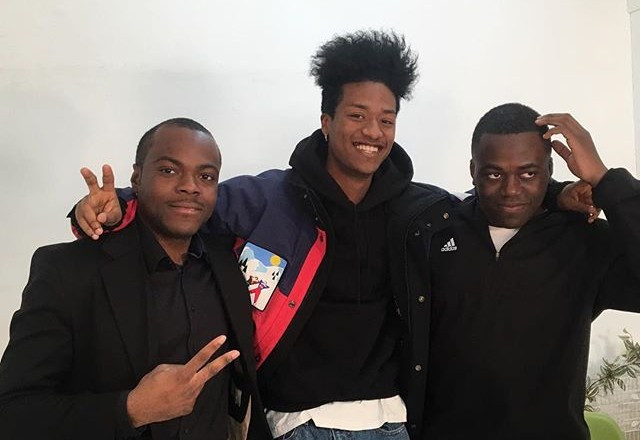Jonathan Thona shared Friday on KBS2's Happy Together 4 what it was like for him to grow up as a black person in South Korea. During the show, he confessed that he deals with racist attitudes there on a daily basis.
On the same show, Thona spoke of his experiences living as a black person in South Korea, saying that he is viewed in public as some sort of "painting" being scrutinized at a "museum." He said some people find him "too dark," although others have been more kind.
What was difficult was that the young man could understand the Korean language and many times found himself being talked about in an uncomplimentary way while being present. There are those who found it remarkable to see someone like him for the first time, "a black person," while some make insensitive comments referring to his color as "so dark," Thona related.
The Congo native recounted an experience he had when he was just a little boy. He was still in elementary school at the time, he mentioned on the show. He was taking a ride on the subway when he noticed an old man staring at him openly for a time before finally coming forward to take his hand.
The elderly man, holding Jonathan Thona by the hand, was said to have murmured that "it doesn't come off," referring to the Congo national's skin color.
Thona clarified though that the comments were not all bad. Sometimes, someone would remark on his comely appearance.
What the young man really protested to was being referred to as "black hyung." The term is used to refer to the remarkable physical characteristics of black people but has come to be spoken more recently with a negative connotation. Thona equated "black hyung" to the term "chosenjin" which is a Japanese form of derogation for Koreans.
Thona said that he is "sensitive" to being referred to as "black" or "dark," more so with the term "black hyung." In fact, he admitted, no one with his skin color likes being named "black hyung." During his TV appearance, he asked people to stop using the term.
Thona is originally from the Democratic Republic of the Congo, but he and his family, which included his mother and his siblings, found themselves living in South Korea, having fled from their home in the tribe town of Kitona.
His father, Yiombi Thona, the king of their tribe in the Congo, was then employed in South Korea, and the family followed him to the latter country.
When the whole family reunited, they were featured in a television documentary Screening Humanity. From then on, the Thonas gained some sort of celebrity status, albeit tinged with racist tones.
Racism in South Korea is a widespread phenomenon and has been recognized by the country's mass media as a grave social concern. Laws condemning discrimination are sadly lacking and ethnic minorities, foreign-born residents, and residents of non-Korean descent face many difficulties, discrimination, as well as exclusion from social systems.





